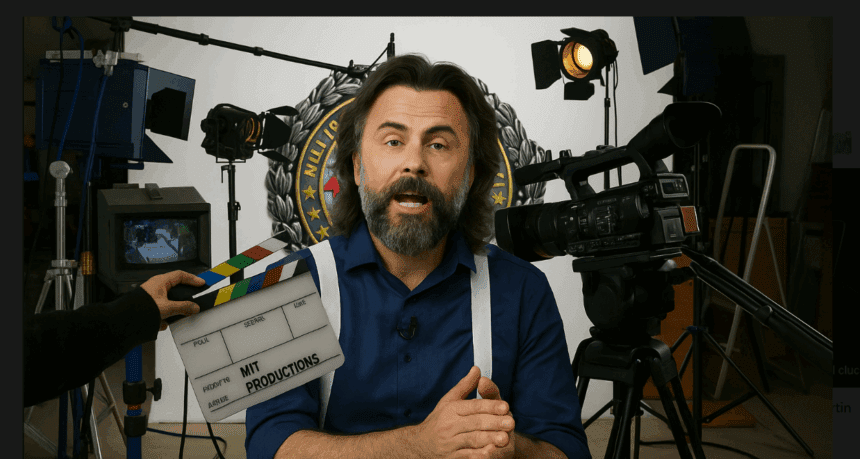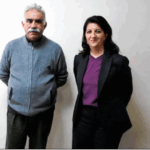For nearly a decade, exiled journalist Ahmet Dönmez has positioned himself as a dissident voice within the Turkish diaspora. Yet his trajectory increasingly mirrors the state’s own strategy of division and co-option—an approach we previously noted in the context of the new Kurdish peace process. Over these years, by insisting that the Gülen movement was “partially trapped” or, to some extent, complicit in the July 15 coup—and portraying Hulusi Akar as the orchestrator who lured sympathizers into involvement—Dönmez validates Ankara’s central narrative: that the movement carries intrinsic blame, even if manipulated.
This dual approach—condemning and criticizing Erdoğan while echoing elements of the regime’s script—has drawn sympathy from a segment of the movement itself, particularly those who were dismissed or imprisoned and who, in their disillusionment, have turned their anger inward at the movement’s leadership. For them, Dönmez’s narrative offers both an explanation and a scapegoat. In effect, his fixation on internal blame, “sympathies,” and “naïve entanglements” serves less as independent journalism than as a state-aligned strategy of fracture: isolating the movement, eroding solidarity, and weakening the movement, especially its diaspora networks, under the guise of critical inquiry.
This pattern persisted until Osman Şimşek, a close aide, began disclosing more details about the letters exchanged between Akar and Gülen. On July 22, 2025, in a YouTube video, Dönmez appeared to contradict himself. For years, his central thesis was that Hulusi Akar never had genuine intentions to carry out a coup. Instead, he was a cunning deceiver who set a trap for the Gülen movement. This long-standing account, which was the focus of Dönmez’s extensive article series, positioned Akar as a master manipulator. Dönmez used titles such as “Hallucination or Hulusination?” to suggest that Akar orchestrated a “theatre of lies” and “a coup psychology.” While he reaffirmed his long-standing claim at the end of this video—that Akar orchestrated the coup to ensnare the movement—he opened by citing a “trusted source” who allegedly heard Akar admit during a recent trip with friends that he had, in fact, been serious about committing a coup and that the planned takeover “didn’t go as planned; it got out of control.” Dönmez even suggested that a recording of Akar making this admission exists and could surface in the future. He emphasized that he trusted this source deeply, yet despite acknowledging the weight of the claim, he quickly retreated into his familiar conclusion at the end of the video, after spinning a set of imagined scenarios to make the analysis appear genuine and sophisticated: that Akar consciously played his role in a grand scheme, and that the movement was trapped in the process. The result is a self-contradictory narrative—entertaining new possibilities only to circle back to the same verdict—sustaining a cycle of confusion that ultimately serves the state’s broader aim of fracturing the diaspora through doubt and internal suspicion. At the close of the video, Dönmez promised he had received further information about Akar and would release several follow-up videos soon, but more than six weeks have passed without any additional disclosure.
“…As we widen the lens, a broader picture comes into view: Mossad, Israel, Iran, Russia, the UK, the U.S.—and even competing factions within the U.S. itself. On the outermost layer, all of them appear. Yet at the core, there was a single plan. One pillar was the purge of the movement. Another was regime change in Turkey—the transition to one-man rule. A third was the staging of political scenarios through Erdoğan himself. Within this design, Hulusi Akar was assigned a critical role. He carried it out effectively. He trapped the movement. At this point, I have no doubt.
The signs are everywhere…. The evidence is overwhelming, pointing in the same direction: Hulusi Akar was not a bystander but a deliberate actor in this setup. I don’t need to list them all again—my earlier work already contains more than enough. To reiterate: I believe Hulusi Akar knowingly took part in this conspiracy. That remains my view… And I have also obtained other information regarding Hulusi Akar. I will make a few videos about it. For now, I’ll conclude this video here..”
Instead of delivering the promised follow-up videos based on his alleged “new information,” Dönmez resurfaced on September 4 with yet another broadcast. This time, he latched onto Osman Şimşek’s recent interview—yet not to reinforce it, but to twist it. Şimşek had already confirmed that Akar’s letters were received and that Gülen replied, and in his reply, Gülen urged Akar to convene respected political scientists, jurists, and opinion leaders at General Staff headquarters to discuss peaceful solutions for Turkey’s future. This context matters: it demonstrates Gülen’s consistent de-escalatory stance, his insistence on dialogue, and the authenticity of the correspondence itself.
In the September 4 video, Dönmez praised Hulusi Akar as vigilant and shrewd—the kind of man who, in his words, “would never step on rotten wood” (yaş tahtaya basmak). With his cunning, political instincts, and experience, Dönmez insisted that Akar was not someone who would ever take such a reckless step as writing letters to Gülen. Yet in his video last July, he cited claims from his “trusted source” that Akar had spoken openly with friends about his serious intention to carry out a coup on July 15, 2016—even asserting, again on the authority of this “trusted source,” that a recording of such remarks exists. But if Akar truly made such a statement in Ankara—a city where, as the saying goes, “the walls have ears”—then he could hardly be considered vigilant. A man who openly admits to planning a coup, knowing how easily it could leak, is by definition not the cautious, calculating figure Dönmez himself has described for years. Even if a recording existed, it would not confirm vigilance but recklessness—contradicting the very traits Dönmez has consistently attributed to Akar.
This is not just inconsistency—it is deliberate technique. By sidelining the most tangible evidence, such as Şimşek’s testimony and Gülen’s direct replies, Dönmez injects doubt where the record offers clarity. Each broadcast masquerades as “critical inquiry” while in reality echoing Ankara’s psychological operations: portraying the movement as fractured, naïve, or complicit. His shifting portrayal of Hulusi Akar is emblematic—praising him as too shrewd and vigilant to ever “step on rotten wood,” yet simultaneously entertaining claims that he openly confessed coup intentions and even wrote letters to Gülen. Such contradictions do not clarify Akar’s role; they muddy it, creating confusion that erodes trust and solidarity within the movement under the veneer of independent journalism.
In this regard, Dönmez’s so-called “analytical” approach—framed through endless scenarios—aims not to clarify events but to deepen the crisis of trust and legitimacy within the Gülen movement itself. By shifting blame for a coup that was destined to fail from the outset—launched on a Friday night around 8 or 9 p.m. in the middle of summer, when people were out on the streets—away from external enemies and onto an alleged internal faction, his latest narrative functions less as journalism than as crisis management after reading our detailed op-ed written a few days ago. It offers disillusioned followers a convenient scapegoat, redirects anger from the state toward the movement’s own leadership, and in doing so signals a new phase in the internal struggle over who defines and controls the movement’s future.
By: News About Turkey (NAT)



